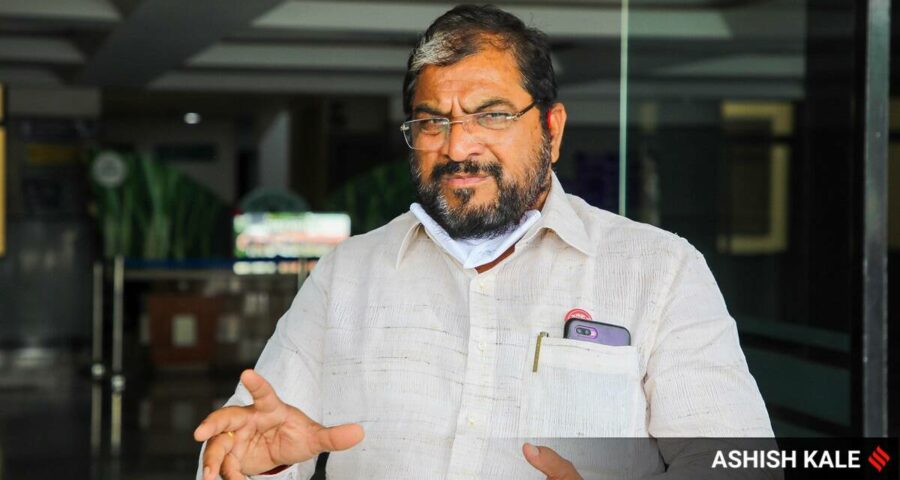One of the biggest problems facing the canegrowers from Maharashtra and Karnataka is the damage caused to the standing crop in the floods, said farmer leader and former MP Raju Shetti
Ahead of this year’s Cane Conclave, farmer leader and former MP Raju Shetti is on a tour of the canegrowing areas of Maharashtra and Karnataka. An annual event of Swabhimani Shetkari Sanghatana, the conclave has been historically a show of strength of the farmers’ outfit, where it decides on the course of action for the next crushing season.
Shetti spoke to The Indian Express about the conclave and the expectation of farmers from it.
What are the main issues before canegrowers ahead of the next crushing season? With sugar prices being good, the sugar industry is upbeat about the season, how is it at the growers’ end?
One of the biggest problems facing the canegrowers from Maharashtra and Karnataka is the damage caused to the standing crop in the floods. Such cane has to be harvested at the earliest so the cane conclave would have to decide on any movement keeping that in mind. Our estimations show that along the border areas of Maharashtra and Karnataka, around 10 lakh tonne cane sustained damage in some form or the other. The government has helped these farmers in any way so we have to ensure these farmers do not lose out financially. The second big question before canegrowers is the decision of many mills to pay the FRP (fair and remunerative price) in instalments. This is completely illegal and will be an important issue in the conclave.
You have recently concluded a tour of all the cane growing areas of the state. What are the main concerns at the ground level?
The biggest issue before the cane farmers is how mills are using the cane registration forms to take their consent for part payment of FRP. Farmers are coerced into this without their knowledge and in some cases, mills threaten not to harvest cane if farmers do not sign this. During my tour, cane farmers raised this matter repetitively. They pointed out that the cane growers are unable to get the advantage of the zero interest farm loan schemes given the fact that their repayment happens after a year. The crop itself stays between 14-18 months on the field. Now if the FRP is paid in instalments why should not the farmers also be allowed to repay their loans in instalments?
Farmers and farm laws have been at the forefront of politics both in state and centre. What is the political atmosphere among farmers in the state?
Canegrowers in the state are in a fix about which political party is talking about them. Niti Ayog, the central planning body, had first proposed legalising payment of FRP in three instalments. Back in the state, the biggest supporter of this move was Sharad Pawar, the supposed architect of the anti-BJP Maha Vikas Aghadi (MVA) government. Farmers are confused about who is really talking for them.
– Stay updated with the latest Pune news. Follow Express Pune on Twitter here and on Facebook here. You can also join our Express Pune Telegram channel here.f
Your defeat in the 2019 elections had seen the farmers’ movement losing a lot of momentum. How do you plan to get that back?
Farmers had turned against themselves. There was a wide rift created among the cane growing community which took two years to heal. The cane conclave will see the rise of a new farmers movement full of vigour and energy.
Source: Read Full Article



